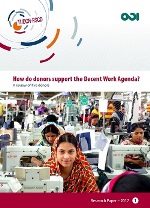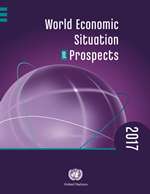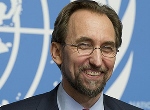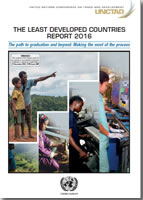Other news
Published on Fri, 2017-03-31 16:56
ICAE announces the ICAE Virtual seminar 2017 - on the topic of “Skills and Competencies”! The seminar is free of charge, open to anyone and will start on April 3rd. Following each issue of DVV International’s journal Adult Education and Development, the International Council for Adult Education (ICAE) offers the chance to discuss the topics raised in the print issue in a virtual seminar. |
Published on Fri, 2017-03-31 16:37
A very short time ago, the General Assembly granted Observer Status to the International Chamber of Commerce. This means the institution, which represents the interests of the biggest multinational corporations, will be able to sit in every session and even get the chance to speak, far more opportunities than what the civil society has. This event can be understood as yet another step in the process of consolidation of a huge influence of the corporate sector into the setting of the development agenda. Within the UN, the influence of the corporate sector, as well as of private interests, has risen non-stop. From the late 90s promotion of Global Compact, to the more formal or informal participation of corporates representatives and philanthropists in SDGs discussions, their views are embedded in the development discourse. As Adams and Martens (2015) points out, there is “a growing reliance on corporate-led solutions to global problems”, which denies that in the context of financialized globalization and the dominance of market self-regulation, the private sector contributes much more to the problems than to the solution. |
Published on Fri, 2017-03-31 16:13
A new TUDCN study by the Overseas Development Institute reviews the contribution of five donor countries to providing decent work in developing countries. Entitled How do donors support the Decent Work Agenda? - A review of five donors, this study assesses the various forms of support provided through Official Development Assistance by France, Japan, Sweden, the United Kingdom and the United States. Looking ahead, the study also includes recommendations on how to better track and evaluate these contributions in the future. The push to achieve decent work is gaining increased momentum within global development efforts. The 2030 Agenda illustrates this well by its recognition of the centrality of decent work in achieving sustainable development. While decent work constitutes a Sustainable Development Goal in its own right, the 2030 Agenda further highlights how the achievement of decent work underpins progress in many other key areas. |
Published on Mon, 2017-03-13 21:16
Recent disturbing trends in international finance have particularly problematic implications, especially for developing countries. The recently released United Nations report, World Economic Situation and Prospects 2017 (WESP 2017), is the only recent report of a multilateral inter-governmental organization to recognize these problems, especially as they are relevant to the financing requirements for achieving the Sustainable Development Goals (SDGs). |
Published on Thu, 2017-03-02 15:18
The ‘financialization of housing' is one of the greatest challenges to the right to adequate housing, with housing now being valued as a commodity rather than a human dwelling, a United Nations rights expert has charged. This admonishment came in the latest report by the UN Special Rapporteur on the right to adequate housing, Ms Leilani Farha (from Canada), which was presented to the Human Rights Council on Wednesday. The Human Rights Council is currently holding its thirty-fourth regular session here from 27 February to 24 March. |
Published on Thu, 2017-02-23 09:30
Austerity policies have all too often gone hand-in-hand with undermining economic, social and cultural rights, while at the same time increasing inequalities in income and wealth within the European Union and its member States. This is one of the main conclusions highlighted by Juan Pablo Bohoslavsky (from Argentina), the Independent Expert on the effects of foreign debt and other related international financial obligations of States on the full enjoyment of all human rights, in his report (A/HRC/34/57/Add.1) to the UN Human Rights Council, which meets here from 27 February to 24 March. |
Published on Thu, 2017-02-16 20:00
The United Nations Human Rights Office has launched an appeal of nearly US$253 million in extra-budgetary funding for its work programme in 2017, with the UN High Commissioner for Human Rights lamenting that his Office is "dramatically and chronically underfunded". The UN Human Rights Office described this extra-budgetary funding as its most ambitious funding appeal yet, and that it would be in addition to the UN regular budget funding of US$107.56 million that is provided to the Office. |
Published on Wed, 2017-02-15 15:28
Austerity-related labour market reforms promoted by multilateral and regional financial institutions in many developed and developing countries have been shown to not help economies recover after crises, and have instead inflicted substantial harm on working people, which will be felt for many years. This is one of the main findings of the UN Independent Expert on the effects of foreign debt on the enjoyment of all human rights, Mr Juan Pablo Bohoslavsky (from Argentina), in his latest report to the thirty-fourth session of the UN Human Rights Council, which meets here from 27 February to 24 March. In his report, the rights expert observed that many States with unsustainable levels of debt or experiencing a financial crisis have implemented austerity policies and labour market reforms with a strong deregulatory impetus, either on their own initiative or at the behest of external creditors, including international or regional financial institutions. |
Published on Thu, 2017-02-09 16:59
The Trade and Development Board of UNCTAD on Monday held a discussion on the Least Developed Countries Report 2016 which amongst others had argued that graduation of the Least Developed Countries (LDCs) is "not the winning post of a race to cease being an LDC, but rather the first milestone in the marathon of development." The number of new countries becoming LDCs, the near doubling of the size of the group in the last 45 years in part reflects the small number of countries graduating out of the category - just four in the 25 years since the principle of graduation was established (Botswana in 1994, Cabo Verde in 2007, Maldives in 2011 and Samoa in 2014). |
Published on Thu, 2017-02-09 16:25
Sovereign debt restructurings, as can be seen from examples like Greece and Argentina, are difficult, often traumatic experiences for the sovereign debtor and its citizens. It is invariably the case that in a sovereign debt restructuring (SODR), the sovereign, because it either has lost access to financing or can only obtain it on more expensive terms, will be forced to reduce its expenditures in order to try and meet its renegotiated debt payments. |
SUSCRIBE TO OUR NEWSLETTER











